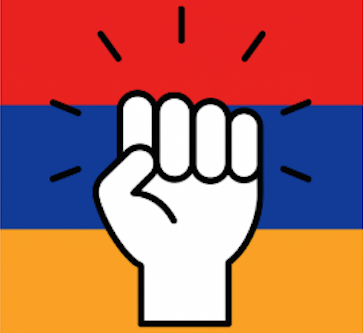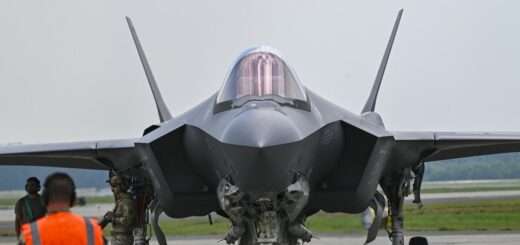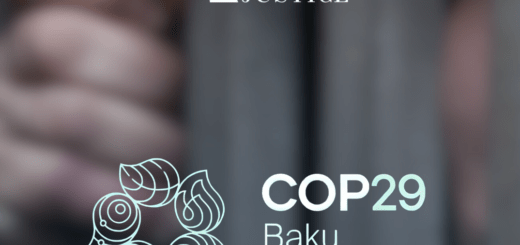Sovereignty Thoughts Toward an Evolving Armenian National Project · Article #2

Author’s Note: This article, the second in a series on the Armenian National Project, examines what sovereignty means for a small nation like Armenia, which throughout recorded history has experienced sovereignty for less than half of its existence. The Armenian National Project here is not a fixed doctrine but rather a framework, a lens through which to rethink sovereignty, identity, and political purpose.
BY RAFFY ARDHALDJIAN
Sovereignty is often misunderstood as an abstract legal concept, but for most nations like Armenia, it is the very essence of survival and self-respect.
Armenians trace their origins to the Armenian Highlands, where identity and homeland gradually intertwined over centuries, drawing on elements from surrounding lands to form a distinct people. Sovereignty has rarely been the norm in Armenian history, but it was asserted in successive eras, from the Orontids and Artaxiads to the Arshakunis, Bagratunis, and the Kingdom of Cilicia. Each time, Armenian statehood emerged only to be undone by greater imperial forces. When sovereignty was lost, Armenians endured through culture, faith, and memory, yet became increasingly vulnerable to domination, displacement, and ultimately genocide.
In modern times, when Armenia regained independence in 1918—after six centuries without statehood and only three years after the 1915 Genocide—Armenians confronted a defining question: what does sovereignty (ինքնիշխանութիւն) mean for a small nation caught between great powers and hostile neighbors? That question returned with the breakup of the Soviet Union and Armenia’s recovered independence in 1991, and even more so when the Armenians of Nagorno-Karabakh, who had lived as an autonomous oblast under Soviet rule, sought self-determination and unification with Armenia, fought a successful national liberation war, and established the Republic of Artsakh—only to be ethnically cleansed in 2023, after thirty years of failed negotiations to resolve the conflict.
This long history explains why sovereignty remains central to Armenian survival: without it, existence itself has been repeatedly put at risk. Sovereignty affirms that Armenians are capable of self-rule, of defining their own future. When that’s denied or eroded, it breeds humiliation, disillusionment, and a pervasive feeling of existential threats . It is the essential framework through which Armenians and all nations seek to secure their future, preserve their culture, and pursue their national interests, making it a vital topic for the Armenian National Project.
Armenian sovereignty is also rooted in the foundational principles laid out in Articles 1 and 2 of the Constitution. Article 1 defines Armenia as a sovereign, democratic, social state governed by the rule of law, establishing the legal and political framework for independent statehood. Article 2 affirms that power belongs to the people, exercised through free elections, referenda, and representative institutions. Together, these articles frame sovereignty not merely as territorial control, but as the collective will of the Armenian people expressed through democratic governance. True sovereignty, then, is inseparable from civic participation, constitutional legitimacy, and the rule of law.
Civic engagement is the lifeblood of sovereignty. It turns abstract authority into a living contract between people and state. When citizens vote, organize, protest, and speak out, they shape the nation’s direction and legitimize its institutions. Such involvement keeps governments accountable and responsive. Sovereignty is not only defended at borders but is sustained in town halls, ballot boxes, and everyday acts of civic responsibility.
Yet the Armenian nation extends beyond the borders of the Republic. Especially for diasporans shaped by genocide, exile, and statelessness, the longing for self-determination remains deeply personal and historically rooted. One can argue that the right of self-determination belongs not only to citizens and passport holders but to Armenians as a people dispersed across the world. But rights alone are not enough.Sovereignty is a two-way street: diaspora Armenians cannot claim participation without also embracing responsibilities, whether through taxation, service, or other forms of shared obligation. Until diaspora voices are structurally included in shaping Armenia’s future, sovereignty will remain a shared but uneven inheritance
At its core, sovereignty means having the authority to make decisions—political, economic, & cultural without external coercion. And while external influence and coercion will always be there, the issue is how to reduce its influence and how to resist it. In the case of Armenians, understanding sovereignty is the first step toward reclaiming it. Not through confrontation, but through clarity of purpose, unity on essential/existential priorities, and institutional strength.
Sovereignty has long been understood as the right of a state to make its own laws, control its territory, define and pursue its own interests, and conduct foreign relations without serving outside interests. It is not identical to independence (անկախութիւն). A country can be independent in the sense of breaking away from outside rule, yet still lack full sovereignty if its decisions are constrained by outside forces and often by direct interference. Conversely, a sovereign state may rely on allies or outside trade and still retain its authority. Nor is sovereignty the same as autonomy: a region may manage many of its own affairs, as Nagorno-Karabakh did under Soviet rule at least in theory, but that autonomy was severely constrained by the power of its immediate overlords (Azerbaijan) and ultimate rulers (the Soviet Union). Without independence backed by the ability to act and be treated as a legitimate political subject, autonomy remains limited. It’s not sovereignty.
Sovereignty, however, is not absolute, it is relative. The United States or China exercise sovereignty with far greater freedom than a small nation like Armenia, which must constantly navigate the pressures of stronger neighbors and shifting alliances. For small states, sovereignty does not mean unlimited independence but the ability to preserve agency, make core decisions about security and identity, and resist being reduced to a pawn in the games of others. The true measure of sovereignty for a small state is not whether it avoids outside influence, but whether it preserves enough agency to make core decisions about survival while living within constraints. In this sense, Armenian sovereignty must be understood as fragile but still meaningful—a space to be defended, expanded, and exercised with utmost care.
An independent Armenia without sovereignty would be a hollow shell: a state unable to make its own core decisions. Sovereignty is not a trophy secured forever; for small nations it must be defended, renewed, and reimagined across generations. Exercising it is the duty of leaders, citizens through their votes and participation, and even the diaspora, whose voice, though less formal, remains part of the national story. The danger lies in misjudging sovereignty itself—either by overestimating it as power or protection we do not possess, or by underestimating it, believing that small states are incapable of real sovereignty.
Sovereignty is not a single, fixed concept. It can be understood through four overlapping dimensions, as outlined by political scientist Stephen Krasner. Domestic sovereignty refers to a state’s authority within its borders, including the capacity to govern and enforce laws. For a democracy like Armenia, this depends not only on formal institutions but also on checks and balances that ensure legitimacy. Interdependence sovereignty concerns control over transnational flows of people, goods, capital, and information. In Armenia’s case, this is especially fragile, shaped by closed borders with Turkey and Azerbaijan, dependence on diaspora remittances, and limited leverage in regional trade corridors. International legal sovereignty rests on recognition by other states and participation in global institutions. Armenia has been a UN member since 1992, and in 2025 Pakistan, the last country not to do so, formally recognized it. Westphalian sovereignty is the principle of non-interference: the doctrine that each state holds exclusive authority over its territory and domestic affairs.
No state exercises all four dimensions perfectly. For small nations like Armenia, each is fragile, but together they define the space in which sovereignty becomes viable. Yet for Armenians, these dimensions cannot be separated from the deeper question of survival. Beyond politics and borders, sovereignty is tied to the preservation of culture, identity, and historical continuity. It is not only about power but about the right to exist on one’s own terms. For a people shaped by displacement and genocide, preserving language, faith, and memory is not symbolic; it is sovereign. Armenia’s survival has rested less on territorial control than on the endurance of its unique culture, alphabet and language, religion, and the persistent struggles that sustained them.
Other small states offer lessons in how sovereignty can be preserved under pressure. Switzerland relied on neutrality and strong institutions. Singapore turned geographic vulnerability into strategic relevance through trade and innovation. But Finland stands out. Attacked by Stalin in 1939, abandoned by Western powers, and forced to cede about 10 percent of its territory, including Karelia, parts of Salla, Petsamo, and half of Lake Ladoga, Finland was also required to accept military restrictions and neutrality. The 1944 settlement allowed the Soviets to lease a naval base at Porkkala, just 30 kilometers from Helsinki. Yet Finland refused to surrender its independence. What others might have called capitulation, Finns called survival. Through realism, restraint, and deep investment in education, institutions, and total defense, including some of Europe’s finest sniper rifles, submachine guns, and light artillery, they transformed fragile sovereignty into the foundation of one of the continent’s most resilient democracies. For Finland, sovereignty was not about perfect freedom, but about protecting enough space to endure, rebuild, and eventually prosper.
Yet for all these lessons, Armenia’s path to sustainable sovereignty remains uncharted. How does a landlocked nation with hostile neighbors build credible defense when formal third party security guarantees prove hollow? How does economic dependence—on energy, trade routes, and external investment—constrain the very political autonomy sovereignty promises? Can a state balance the influence of its global diaspora with the democratic will of its citizens at home? How does Armenia navigate between competing regional blocs without surrendering decision-making authority? Can sovereignty survive demographic decline and the exodus of human capital that weakens the nation from within? And perhaps most critically: can Armenia build institutions that are not only functional but trusted, institutions capable of absorbing shocks, resisting corruption, and representing the full spectrum of its society?
These questions have no easy answers, but they cannot be avoided. Armenian sovereignty is not a prize won in 1991 and secured forever—it is a daily practice of difficult choices, strategic patience, and collective commitment to civic responsibility. Each generation of Armenians must reimagine what sovereignty means in their time, defend it against new threats, and pass it on strengthened to the next.
Choosing amidst shades of grey is never easy, but sovereignty requires balance and wisdom. History and geography have much to teach, yet learning must avoid wild swings or the black-and-white thinking seen since 2020. We cannot learn without assessing our circumstances and separating policy from politics. The work is never finished, and the stakes could not be higher. Armenians have borders, a flag, and a constitution. But until sovereignty is defended, exercised wisely, and shared, independence remains an unfinished project.
Raffy Ardhaldjian is a Fletcher School graduate and advisor to tech companies, public institutions, and NGOs. In his spare time, he writes about strategic topics spanning Armenia and the Armenian diaspora.





